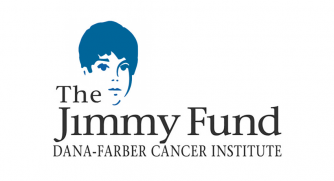Psychology Internships
In addition to learning basic principles in the core courses, students also complete internship experiences and attend career panels to learn more about psychology-related careers.
Students seeking real-world experience in clinical, research, or other psychology-related settings are encouraged to apply for an internship.
Internships can provide insight into whether one enjoys working in specific settings (e.g., school, clinic, research, inpatient), with certain age groups (e.g., children, adolescents, young adults, seniors), and with specific diagnoses (e.g., autism, PTSD, depression).
Additionally, one may gain insight into the therapy or research process, learn more about oneself and one’s career goals, and make valuable connections in the field of psychology.
Internship protocols
Students who have previously participated in the Psychology Department's Internship Program have recommended starting the process early, as it may take longer than anticipated.
- Students who have a 3.0 GPA or higher are eligible to apply for Internship during their junior and senior years.
- Students interested in applying for Internship must attend an informational meeting and apply to the program the semester before they plan to engage in an internship (e.g., fall application for a spring internship and spring application for summer & fall internships).
- Junior and senior psychology majors will be notified via email the time and date of the informational meeting in the first half of the semester. At this meeting, students are asked to provide information about their grades, their relevant past experiences, and their goals for Internship. Students will then sign up for a group meeting to discuss this information further with the Director of Internships.
- Following the meeting, students will be informed whether they have been selected for the Internship class. Students that are approved for Internship may begin to reach out to sites to apply and interview, using contacts listed in the Psychology Department’s Internship Site Document, Handshake, or another reputable resource (e.g., faculty recommendations). While interviewing, students should check with sites to be sure that their Internship schedule does not conflict with any of their classes, including Internship class, and that they can meet the 112 total required hours (approx. 10 hours per week). Students can utilize the Career Center for resume and interview skills practice.
Once students receive an offer, they must contact the Director of Internships for approval BEFORE accepting the offer. The Director will reply and later follow up with instructions for paperwork to enroll in the course. If any questions or concerns arise in the process, students are encouraged to reach out to the Internship Director at any time.
Participating in my internship taught me myriad skills, not just regarding the clinical field of psychology, but also how to better interact with coworkers and network with potential future connections.
Internship Opportunities
Places where Stonehill College students have recently interned include:
Networking Opportunities
The Stonehill Career Development Center and Psychology Society regularly join forces to host career panels especially for psychology students. The panel include Stonehill alumni currently working in a variety of psychology-related careers who volunteer their time to help current students plan their own careers. Students get to hear a little bit about each panelist and then meet with three of their choosing in smaller groups in order to ask more specific questions.
Career Development Resources for Students
The Stonehill Career Development Center offers extensive assistance to students seeking employment, pursuing advanced studies or participating in postgraduate service opportunities. By completing internships and utilizing mentors, students are empowered to build lifelong career management skills.
Psychology-specific career resources:
- Extensive on-campus recruiting program for internships and entry-level positions
- Annual career fairs
- Various industry-specific career lunches – human resources and human services
- Psychology Career Panel and Networking event (with Psychology Society)
- Number of active psychology mentors: 171








